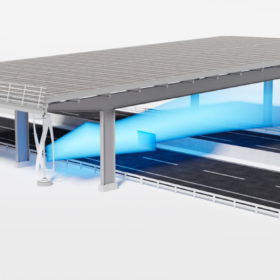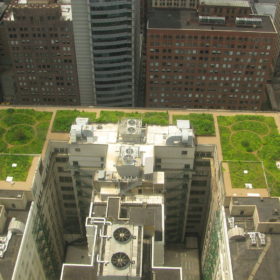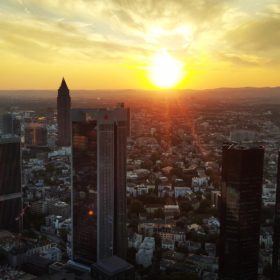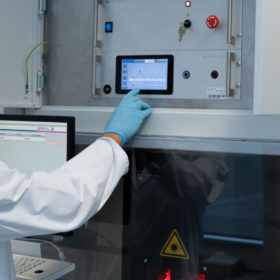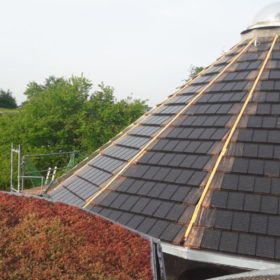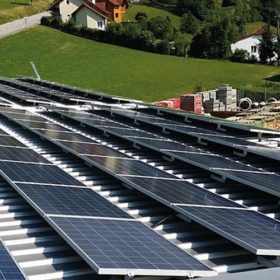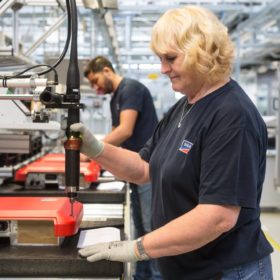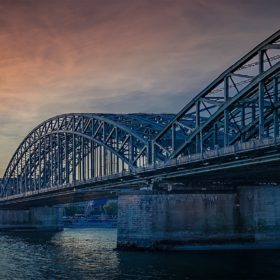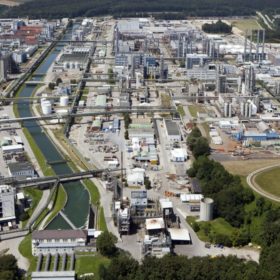Hybrid wind-solar for highways
Switzerland-based Energy Pier has developed a new concept for hybrid-wind solar projects located along highways. The proposed solution combines a rooftop PV system with small scale wind generators that are installed on both sides of the supporting pillars of the system.
Green roofs may improve PV system performance by 8%
German solar company Polarstern sees many performance-enhancing effects when photovoltaic systems are combined with green roofs. These are provided by cooling, dust absorption and reflective behavior, which are favored by the plants on the roof.
Germany installed another 400 MW of PV in July
In the first seven months of the year, the country deployed 3.2 GW of PV, which compares to 2.8 GW a year earlier.
Fraunhofer CSP develops repair process for PERC solar cells
The performance of the solar cell contacts can be improved with laser-assisted current treatment. The process does not damage the solar cells but only optimizes faulty semiconductor-metal contacts.
Conical roof equipped with solar tiles
The solar tiles were deployed on a conference center in Glücksburg, Germany. In addition to PV, the building also uses solar thermal energy and biomass to cover heat demand. The power generated by the PV array is utilized entirely for self-consumption.
Austria allocates additional €20 million for rooftop PV projects
The Austrian authorities will use €20 million to provide more support for the country’s rebate scheme for residential PV projects up to 50 kW in size.
SMA warns of electronic component shortage
In the first half of the year, the German PV inverter maker recorded high demand for its inverters and storage solutions from the residential solar segment. The effects of the corona pandemic, however, have had an impact on the commercial segment and, although a recovery in demand is expected in the second half of the year, SMA said it is currently dealing with delivery issues.
Germany needs 446 GW of PV for 100% renewables scenario
According to a new study by the Fraunhofer ISE, there is more than enough space for this huge growth in installed solar PV capacity. Indeed, if all available areas were used for PV – including opencast mines, facades, roads, and agricultural land used in combination with solar power generation – over 3,000 GW could be deployed.
German manufacturer unveils 10-busbar, half-cell PV modules
Bauer Solartechnik GmbH has released its new 400 W and 405 W BS-M10 PV panel series for rooftop projects.
Higher polysilicon prices improve Wacker’s financials
The Munich-based chemical company was also able to significantly increase sales volumes for its polysilicon segment. In June, Wacker Chemie raised its forecast for the full year substantially.

